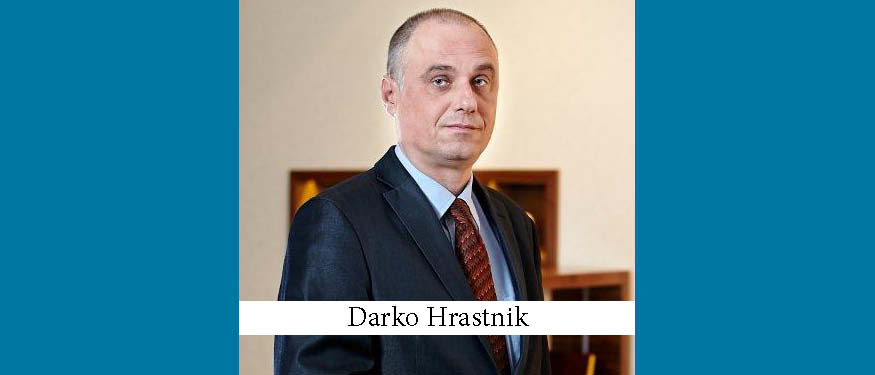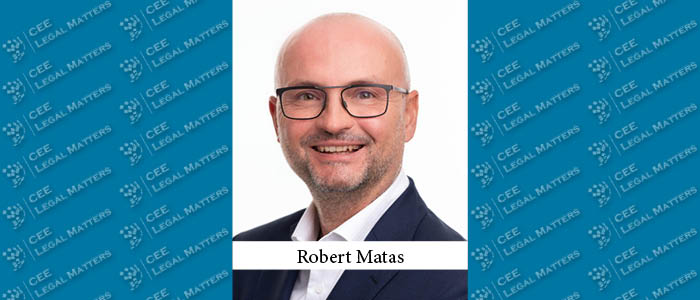On December 20th, 2016, CEE Legal Matters reported that the Slovenian metal-processing company UNIOR had completed a syndicated debt refinancing process with a group of six banks. We interviewed Darko Hrastnik, the Chairman of the Board and CEO at UNIOR, who was directly responsible for handling the transaction and managing the external counsel.
CEELM: We understand that UNIOR doesn’t have an in-house legal team. Who within your team was tasked with selecting and then liaising with your external legal counsel on this matter?
D.H: UNIOR has its own small legal team which deals with day to day matters but does not have enough experience and knowledge about banking and refinancing processes, since they are not on our table very often. Therefore, the assistance of experienced external specialist, who is also familiar with practice, internal procedures, and thinking of the banks was needed. The process of selection and liaising with external legal counsel was managed directly by the management board of Unior with assistance of in-house legal team.
CEELM: The company is in the process of being privatized in what has been described as "currently the biggest anticipated Slovenian privatization procedure.” Did this process complicate the refinancing process in any way? If so, how?
D.H: The process of privatization partially initiated the process of refinancing. The goal of the company, the sales consortium, and the banks was to conclude the process of refinancing first and only afterwards to continue with crucial activities of the sales process.
CEELM: Why was the existing debt refinanced by two separate syndicated facilities agreements?
D.H: Under the MRA which was signed in 2013 between UNIOR and 12 banks, UNIOR committed to sell the Tourism division (profit center). UNIOR's general activities can be divided into two parts: metal and tourism. The metal part represents around 86% of the company's turnover. Before refinancing there were 12 banks with a lot of different loans. Collaterals and loans were mostly not linked with the two activities and their needs. We had a problem of cross collaterals between both activities, and, in addition, the banks had different positions with respect to their security. Refinancing has simplified the situation significantly. We now have fewer banks with the same treatment and a clear distinction as to which loan and which collateral belong to each activity of the company. Two separate agreements could simplify the sales procedure since our tourism division can now be spun off — and if necessary sold separately.
CEELM: What were the criteria for which you picked Rojs, Peljhan, Prelesniki & Partners to work on this deal?
D.H: RPPP was also our legal counsel for the MRA that was signed in 2013. We were extremely satisfied with their work at that time, when the first cases of financial restructuring in Slovenia appeared. At that time the participants of such cases in Slovenia did not have sufficient experience in this field. In addition we have cooperated with them in some other cases since 2012. They know our company, they were deeply informed about the commitments in the MRA, they are responsive and experienced in this field, always bringing solutions and smart proposals. Other than them we do not see many top level law firms specialized in these field in Slovenia.
CEELM: What was the firm’s mandate specifically and what work was carried out by your own team in this deal both in terms of negotiating and signing the main terms and conditions of the refinancing (completed in August 2016) and in terms of negotiating and signing of the finance and ancillary security documents (completed in December 2016)?
D.H: All negotiations between the banks and UNIOR were carried out with the presence of law firm and representatives from UNIOR. Legal matters were in some cases negotiated directly between UNIOR's law firm and the law firm representing the banks. Of course, all the legal matters were finally agreed upon and confirmed by responsible persons from UNIOR and the banks. On the other hand, economic and matters connected with commitments and other conditions were agreed upon between the banks and UNIOR. With most of these issues the experience of the law firm was more than helpful and was expressed through ongoing advice which helped us to conclude the deal.






























